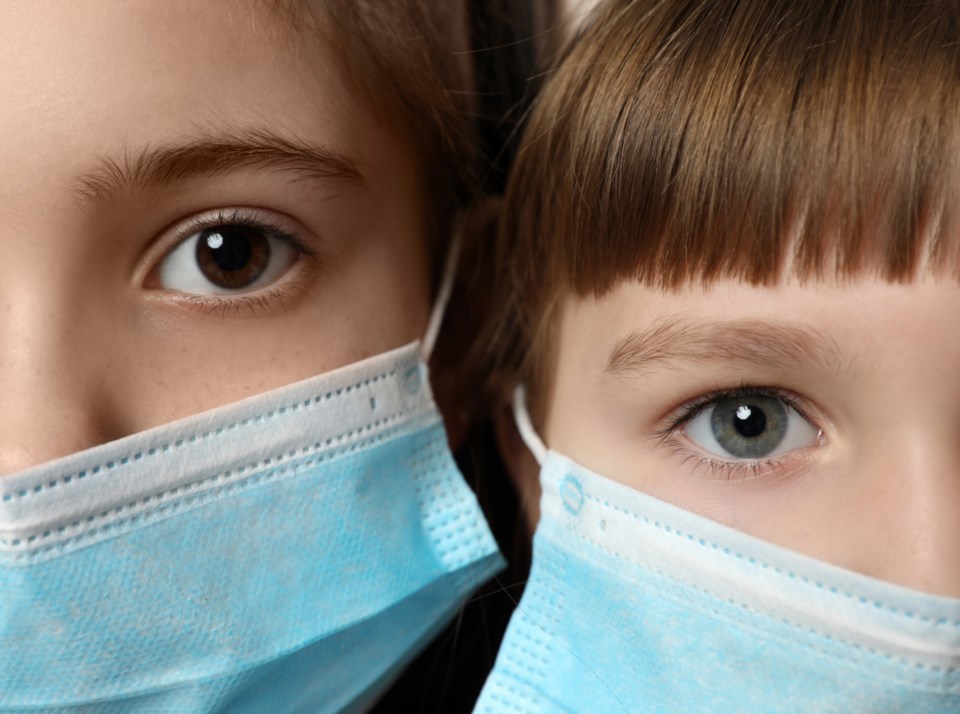The majority of Canadians are aware of the public health risk of COVID-19, but 15 per cent say they don’t believe the virus poses a big health risk to the population or are undecided, according to a new survey by Morneau Shepell.
The findings have raised questions among public health experts about how to address those who don’t believe in the seriousness of a virus that has killed more than 10,000 Canadians, and whether their skepticism poses a risk as COVID-19 cases rise at an unprecedented rate.
In a survey of 3,000 workers across Canada conducted Sept. 28 to Oct. 19, focused on COVID and its mental health impacts, 86 per cent of respondents agreed the virus is a serious public health risk. Six per cent said they do not, and eight per cent said they were undecided.
Those who believe COVID-19 is not a serious public health risk also reported lower rates of poor mental health than those who do believe the virus is a risk. The mental health of skeptics is 6.9 per cent lower than pre-pandemic rates, whereas the average of mental health decline among Canadians is around 11 per cent, Morneau Shepell says, citing its Mental Health Index.
This indicates that believing COVID-19 does not pose a serious risk “contributes to less mental health strain,” Morneau Shepell said of its findings in a report, released Thursday.
Paula Allen, senior vice-president of research, analytics and innovation at Morneau Shepell, said finding a small percentage of the population that didn’t believe in the risk of COVID-19 was not surprising.
“I’d question the data if that number was zero,” Allen said.
But the data does indicate what some know to be true: not everybody agrees that COVID-19 is a danger.
Dr. Colin Furness, an associate professor at the University of Toronto’s Dalla Lana School of Public Health, said the percentage of people who don’t believe in the risk of the virus or are undecided is likely to be higher at 20 per cent, given that those who are unconvinced about the severity of COVID-19 likely won’t answer surveys about its impact.
Furness said it’s difficult to decipher why some people are apathetic about COVID-19. Part of it, he said, could be denial, though it’s hard to measure people’s perception of their own reality through self-reporting surveys.
“Denial is an adaptive response,” Furness said. “If you want your cortisol levels to go down, if you want your blood pressure to go down, if you want to be able to sleep, there’s nothing like denying reality that lets you do that.”
For Allen, the findings point to some people’s perception that the virus isn’t something to worry about. This could govern how they navigate their everyday lives, and it poses a concern about how their behaviour will affect others, she added.
“If your perception is that there really isn’t any kind of risk to your health or the wellbeing of others, your perception is also likely to be that this is going to blow over quickly as well,” Allen said, adding that their behaviour to mitigate the risk of infection won’t change, likely to their detriment “and perhaps the detriment of others.”
At the time the survey was conducted and shortly afterwards, COVID-19 cases reached unprecedented highs in Toronto and Ontario. On Wednesday, Ontario broke another record with more than 1,400 daily cases reported.
For the majority of Canadian workers who do take COVID-19 seriously, their mental health has been hurt by the recent spike in cases, the Morneau Shepell survey revealed. Anxiety, depression, work productivity and optimism levels have all worsened since Morneau Shepell’s last mental health survey in September.
Canadian’s overall mental health has declined 11.4 per cent from pre-pandemic rates, inching closer to mental health rates in April and May when the impact of the pandemic was first felt. Allen said this number is even more worrisome in October due to the prolonged pandemic-induced stress people have been feeling for months.
While 90 per cent of those surveyed said they are handling the health and safety risk of the pandemic well, 35 per cent didn’t have that same confidence in their neighbours, and that percentage of people reported lower mental health scores overall.
But Furness offers some perspective: the small percentage of people that don’t believe in the risk of COVID-19 are likely not the main drivers of the uptick in infection; rather, he believes it is the behaviour of the majority who are confused about mixed messaging from public health officials.
Bars and restaurants have remained open in many areas, allowing people to gather and socialize in small, confined spaces. Yet people were told to simultaneously limit personal gatherings, likely causing risky behaviour in other circumstances, Furness said.
“We’re saying ‘Do this, it’s fine, just please don’t do the same thing in your living rooms for reasons we can’t explain,’” Furness said. “And that last piece, people aren’t able to hear.”
It’s also unlikely that the opinion of COVID-19 non-believers will change, Furness said. The solution then lies in sidestepping the problem by implementing mandatory mask-wearing and other simple, effective measures.
For those who are worried, both Furness and Allen encouraged people to focus on what is within their own control: following safety measures, staying informed, preparing for the unpredictability of the virus and reaching out for help when it’s needed. Allen also pointed to AbilitiCTB, an Ontario-funded online platform that provides free virtual therapy.
“That’s the way you deal with fear,” Furness said. “Try to convert it into vigilance.”
Nadine Yousif, Local Journalism Initiative Reporter, Toronto Star
